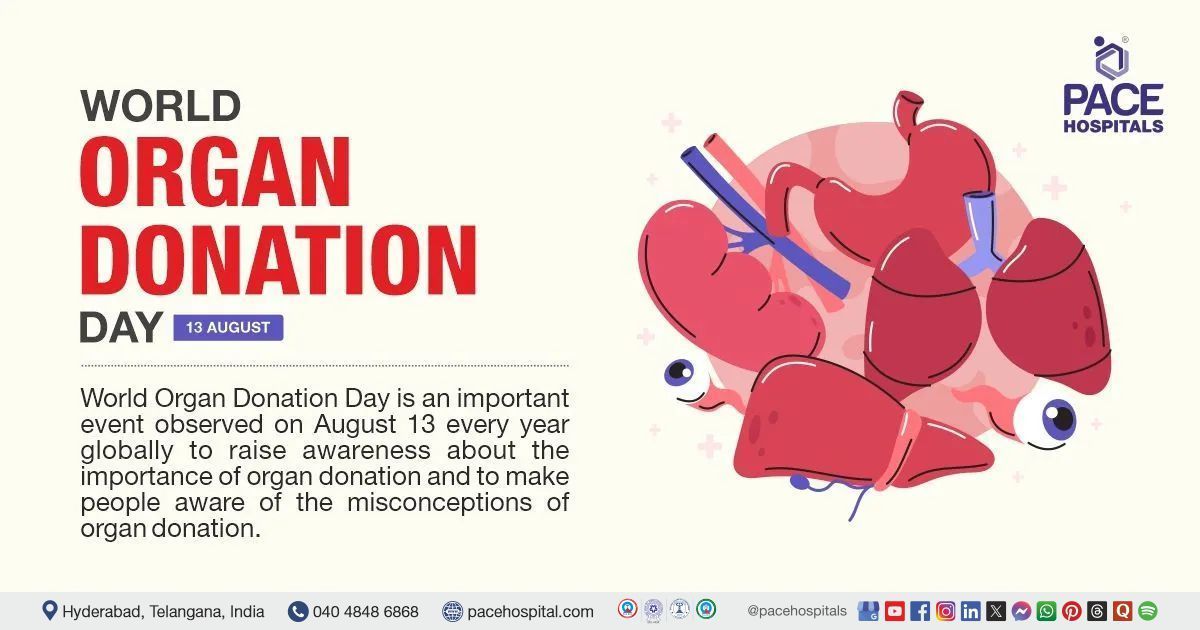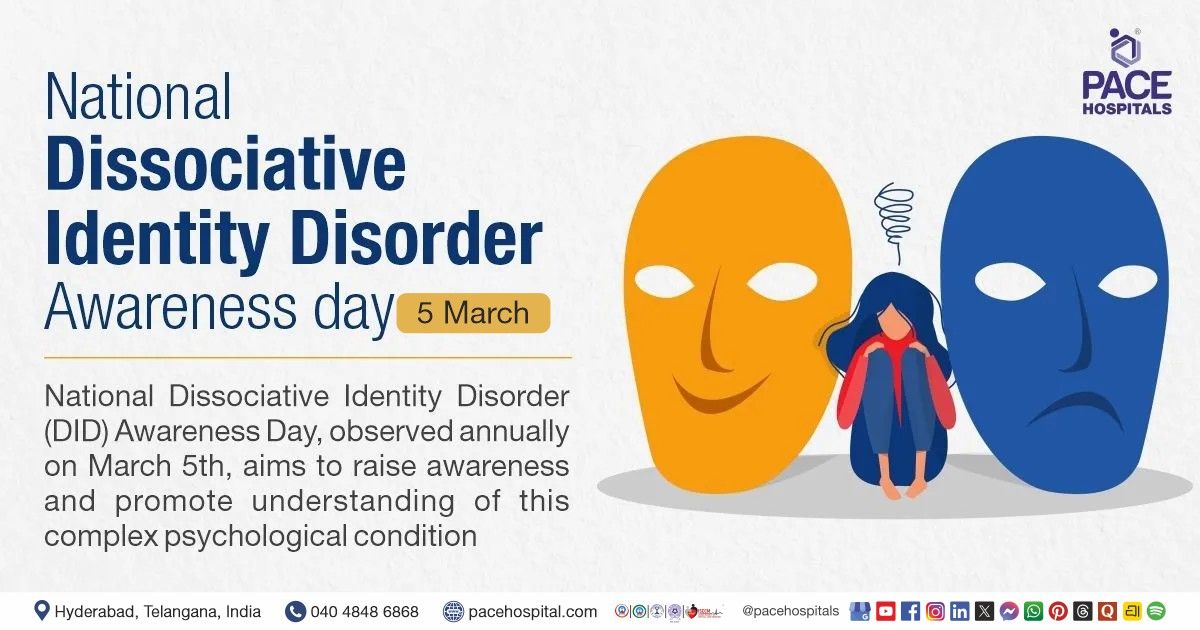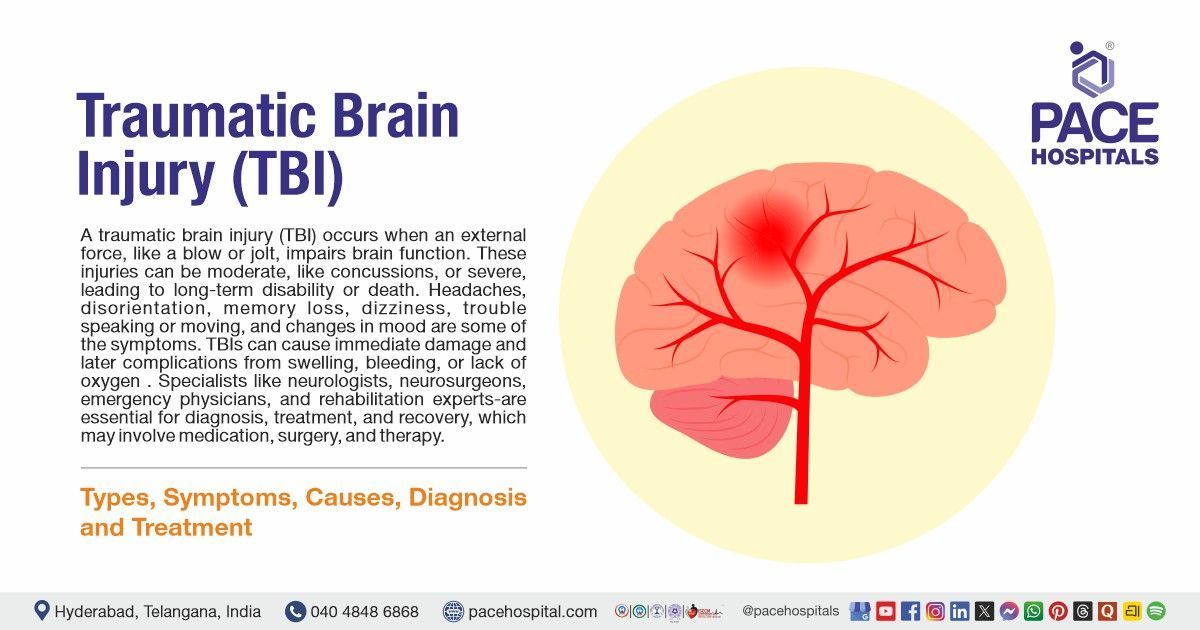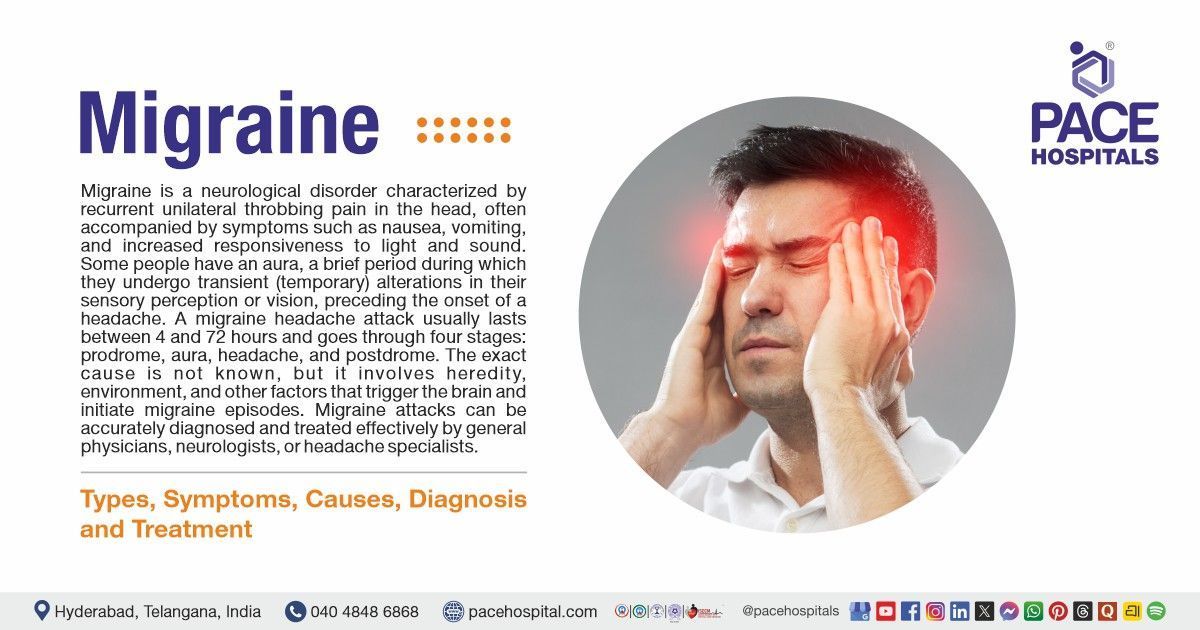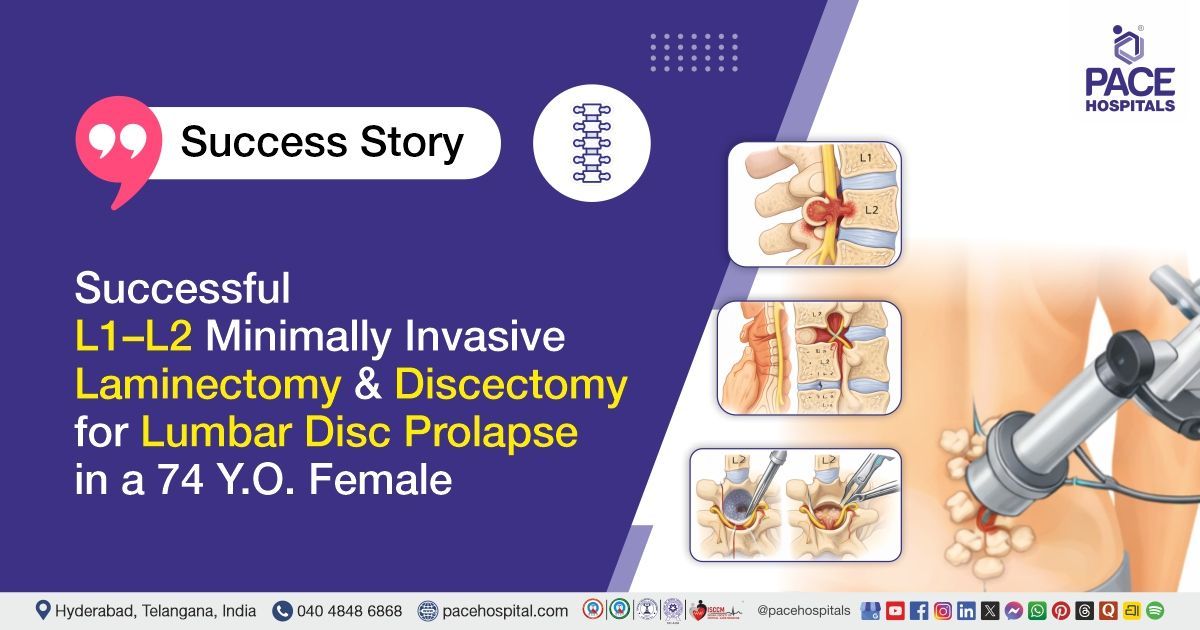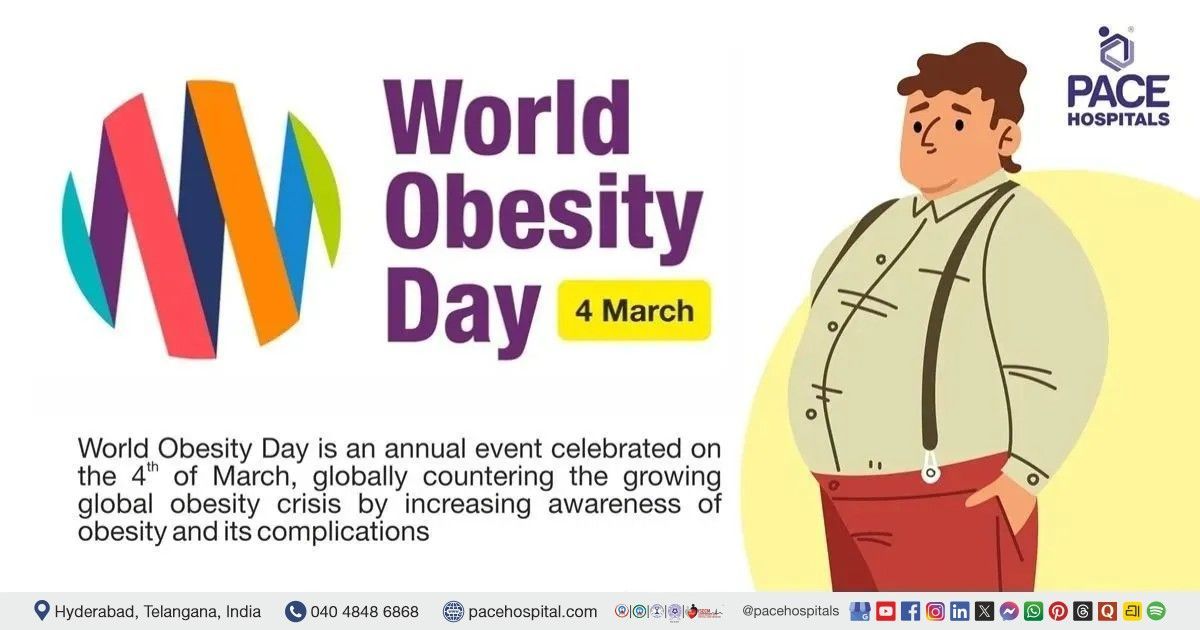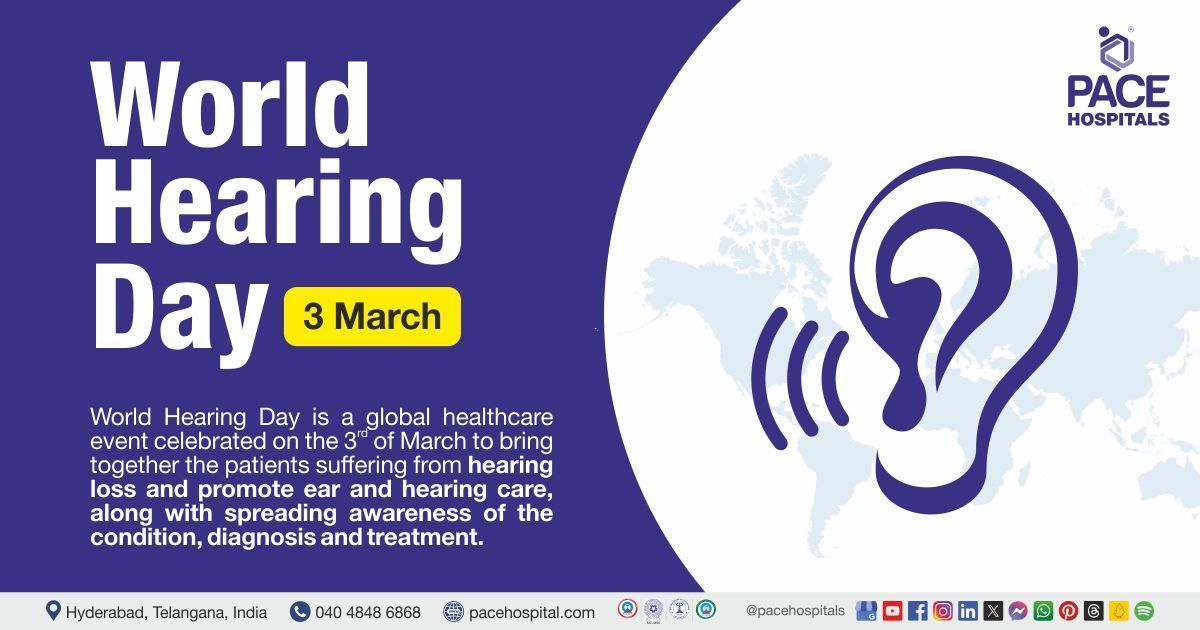World Organ Donation Day, 13 August 2025 - History, Importance and Facts
PACE Hospitals
World Organ Donation Day is observed on August 13 every year globally to raise awareness about the importance of organ donation and to make people aware of the misconceptions of organ donation. The sole aim of the organizations involved in these noble event is mainly to encourage and educate people on the importance of donating organs after death to save more lives. Organ donations such as kidneys, heart, pancreas, eyes and lungs can save the lives of people suffering from chronic diseases.
Donating an organ is the process of allowing one person, with their consent, to have their organs legally removed and transplanted to another person, where the donor can be living or dead and a close relative.
Organ failure has been one of the leading morbidities, with more lives lost in the pandemic and the past. Many needy patients lose their lives because of the lack of organ availability. One initiative can save up to eight lives by donating hearts, kidneys, pancreas, lungs, livers, intestines, hands, faces, tissues, bone marrow and stem cells.
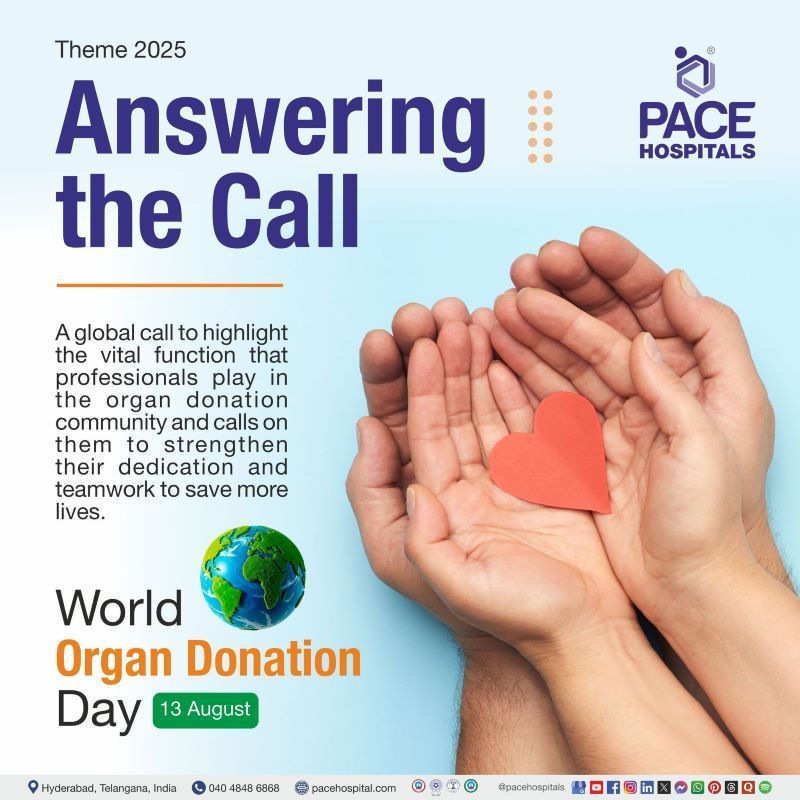
World Organ Donation Day 2025 Theme
This year, 2025, the theme for World Organ Donation Day is “Answering the Call”. This theme highlights the vital function that professionals play in the organ donation community and calls on them to strengthen their dedication and teamwork to save more lives. In the end, it gives patients and their families hope by honouring their compassion and dedication and acting as a call to action for further progress in organ donation and transplantation.
In 2021, globally 1,44,302 organ transplantations had occurred, where 26.44% (38,156) are of deceased organ donation. India had performed a total of 12,259 transplantation, which contributes 8% to the global transplantations, where the major ones are for kidneys (74.27%) followed by liver (23.22%), heart (1.23%), lung (1.08%), pancreas (0.15) and small bowel (0.03%). The overall number of deceased donors’ transplantations in India are 4.5% (552).
As per a research report, in comparison to 2021, India had reported 1137 more deceased organ transplants in kidney (759), liver (279) and heart (99), respectively . However, as per the Indian Ministry of Health's estimation, about 175,000 kidneys, 50,000 livers, hearts, and lungs, and 2,500 pancreases are needed to meet the demand.
The rate of < 1 per ten lakh people in deceased donors has been relatively constant between 2013 and 2021, where an estimated 62 per ten lakh population of deceased donors is needed for India to become organ donation self-sufficient.
As per Indian Ministry of Road Transport and Highways 2021 report, more than 1.5 lakhs were reported as accident-related mortalities; however, only 552 deceased brain deaths organ transplantations were done as per the 2021 global organ donation report. Therefore, raising public awareness about the importance of volunteer registering for organ donation, can help many people who are in requirement of an organ for their survival, thereby reducing the number of patients in need (waiting list).
History of Organ Donation Day
Ronald Lee Herrick was the first person to donate his organ. In 1954, he denoted his kidney to his twin brother, and Dr Joseph Murray was the doctor who carried out this successful organ transplantation process. Later in 1990, He was honoured with Nobel Prize in Physiology and Medicine for bringing advances in organ transplantation.
Concerning the organ donation initiatives, different parts of the world tackle the unawareness and importance of organ donation based on their conditions and capacity. In India, to promote the act of organ donation, national organ day was celebrated on 27th Nov, which was started in 2010 under the Ministry of Health & Family Welfare by the National Organ and Tissue Transplant Organization (NOTTO) until 2022.
In 2023, the India organ donation day is shifted to 3rd of August, commemorating India's first successful deceased-donor heart transplant on August 3rd, 1994.
Importance of Organ Donation Day
Organ donation plays an essential role in saving lives. Organ donation gives new life to people suffering from organ failure. Medical improvements over the years regarding organ donation has successfully unveiled the myths associated with organ donation.
It is a day to convey the importance of organ donation. The purpose of this day is to help people understand that volunteering for organ donation can change many people's lives. Organ donations can be made at any age, but donors under 18 must have parental or guardian consent to register.
Types of Organ Donation
There are two forms of organ donation: living donation and cadaver donation. In a living donation, the donor is alive, but in a cadaver, the donor donates after death.
Living donors are the organ donors who can donate organs such as kidneys and parts of the liver. Humans can survive with one kidney, and the liver is the only organ in the body known to regenerate, making it possible to transplant these organs while the donor is still alive.
A healthy donor is most important. An organ donation can be done by anyone regardless of age, caste or religion. However, it is imperative to ensure that aspiring organ donors do not suffer from chronic illnesses such as HIV, cancer, heart and lung disease.
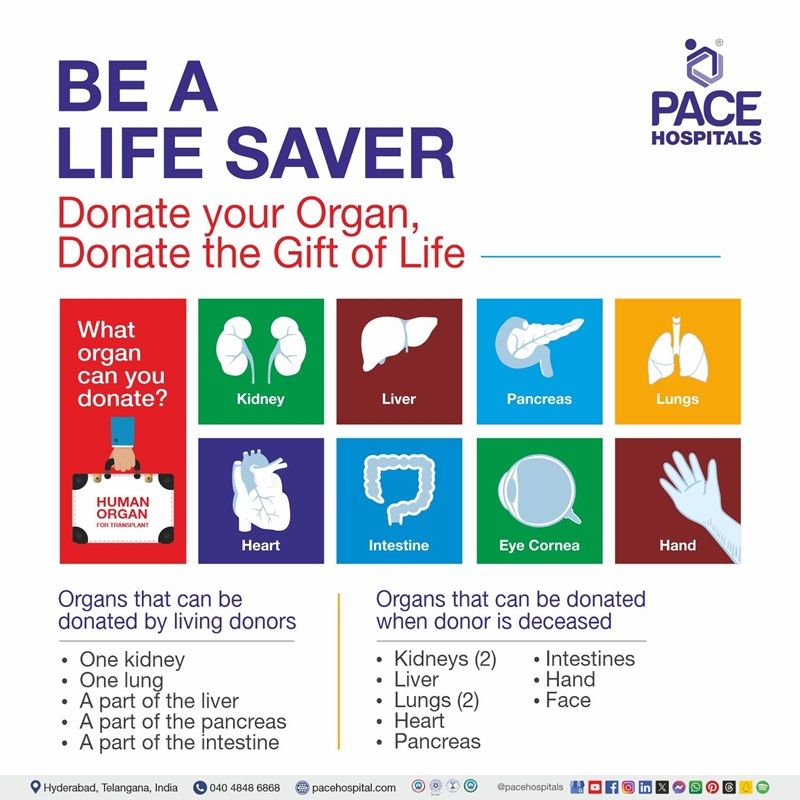
List of Organs that can be Donated
Organs that can be donated by living donors
- One kidney
- One lung
- A part of the liver
- A part of the pancreas
- A part of the intestine
Organs that can be donated when donor is deceased
- Kidneys (2)
- Liver
- Lungs (2)
- Heart
- Pancreas
- Intestines
- Hands and Face
Some Facts about Organ Donation
- In the case of natural death tissues of cornea, heart valves, bone and skin can be donated whereas other vital organs like heart, liver, intestines, kidneys, lungs, and pancreas can only be donated in the case of brain death.
- There is no specific age for organ donation, but the donor's medical conditions are strictly verified and monitored.
- If someone younger than 18 wants to donate an organ, they must have consent signed by their parents or guardians.
- In 2015, an infant who donated a kidney to an adult with renal failure became the youngest organ donor. The infant lived only 100 minutes after birth.
- The oldest known donor is from Scotland, who donated a cornea after a 107-year-old woman died in 2016. The oldest known organ donor was a 95-year-old man from West Virginia who donated his liver after he died for a liver transplantation.
- India has Human Organ and Tissue Transplantation Act to regulate organ donation in the country. The law allows both dead and living people to donate organs.
- According to the World Health Organization, about 0.01% of people in India donate their organs after death.
- There is only 3% of registered organ donors in India.
- According to 2019 AIIMS data, 1.5-2 lakhs of people require a
kidney transplantation yearly, but only about 4% able to get it. Similarly, approximately 80,000 patients require liver transplantation yearly, but only 1,800 ultimately receive it.
Share on
Request an appointment
Fill in the appointment form or call us instantly to book a confirmed appointment with our super specialist at 04048486868

